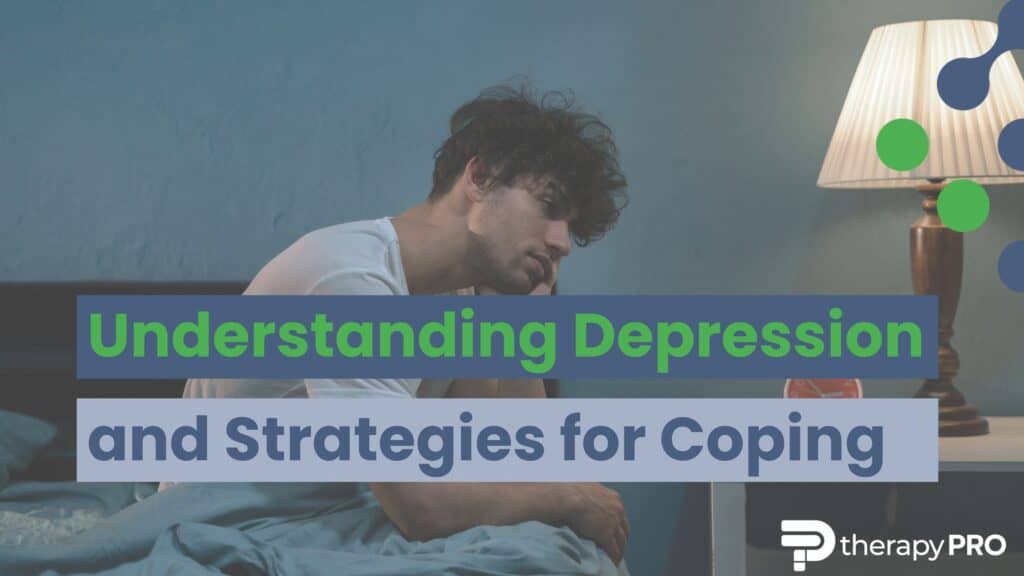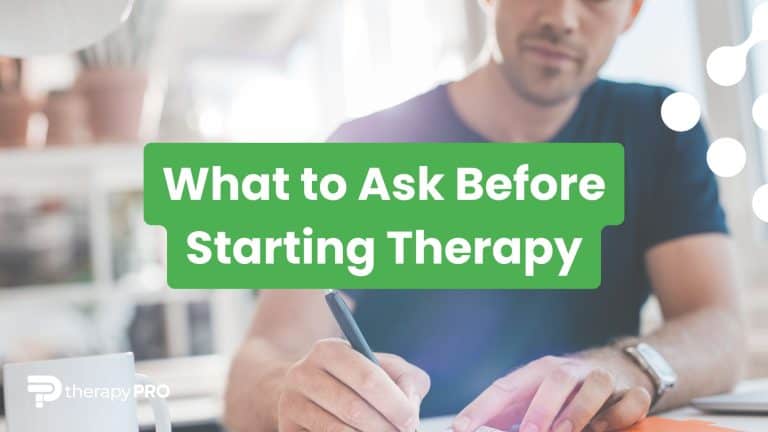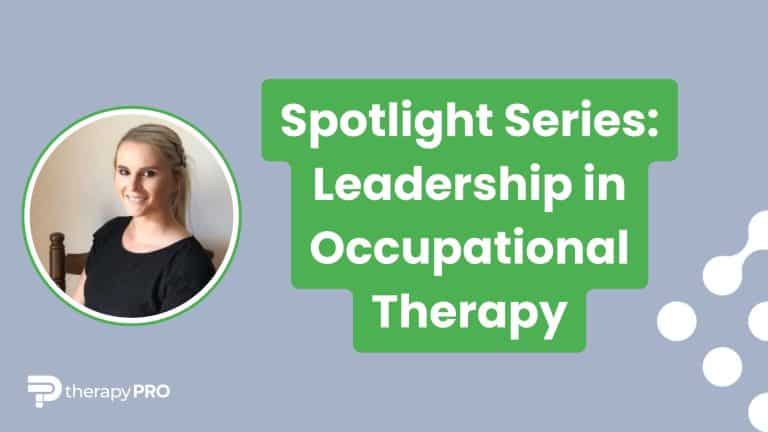Understanding Depression and Coping Strategies
Depression is a complex and often misunderstood mental health condition that affects millions worldwide. Whether you are experiencing symptoms of depression yourself or are concerned about a loved one, gaining a deeper understanding of this condition is the first step towards healing and recovery.
In this article, we aim to help you to better understand depression by exploring its symptoms, causes, and outline specific depression coping strategies. We also highlight the relationship between depression and anxiety, as they frequently coexist, impacting overall mental wellness.
What is Depression?
Depression is more than just feeling sad or going through a rough patch.
It’s a persistent mental health disorder that affects how you feel, think, and handle daily activities.
Unlike the temporary emotional responses to life’s challenges, depression can significantly impair a person’s ability to function effectively. It can lead to a variety of emotional and physical problems and can decrease a person’s ability to perform at work and at home.
Before we jump into the symptoms of depression and associated coping strategies, let’s take a closer look at the five main causes of depression.
5 Main Causes of Depression
Genetic Factors
Depression can run in families, suggesting that genetic factors can play a significant role in the risk of developing the condition. While no single gene is responsible for depression, several genes are believed to interact with environmental factors to increase the risk of developing the condition.
Brain Chemistry Imbalance
The brain’s chemistry, particularly the balance of neurotransmitters, plays a crucial role in mood regulation and emotional well-being. Neurotransmitters like serotonin, dopamine, and norepinephrine are chemical messengers that transmit signals across the brain to influence mood, sleep, and cognition. An imbalance in these neurotransmitters can lead to symptoms of depression. For instance, low levels of serotonin are often linked to feelings of sadness, anxiety, and sleep problems, while dopamine is associated with motivation and pleasure.
Stressful Life Events
Life events that induce high levels of stress, such as the death of a loved one, divorce, job loss, or significant life changes, can trigger depression in some individuals. These events can overwhelm an individual’s ability to cope, leading to feelings of sadness, loss, and hopelessness. The stress-response system in the brain, involving the hypothalamic-pituitary-adrenal axis, can become overactivated, affecting mood regulation.
Medical Conditions
Certain chronic medical conditions are linked to an increased risk of depression. Conditions like diabetes, heart disease, cancer, Parkinson’s disease, and hormonal disorders can contribute to the development of depression, possibly due to the stress and challenges of managing a chronic illness. Additionally, some conditions can directly affect the brain’s chemistry and functioning, further increasing the risk.
Psychological Factors
Psychological factors, including low self-esteem, chronic negative thinking, and past traumatic experiences, significantly contribute to the risk of developing depression. Individuals with low self-esteem may view themselves and their experiences negatively, increasing their vulnerability to depression. Persistent negative thinking patterns, such as rumination and pessimism, can exacerbate feelings of sadness and hopelessness. Traumatic experiences, especially in early life, can alter the brain’s response to stress and emotion, increasing the risk of depression later in life.
By understanding these various factors, individuals and healthcare providers can better recognise the signs of depression and develop effective treatment plans.
But what are the symptoms of depression?
Top 3 Symptoms of Depression
Persistent Sadness or Hopelessness
This symptom of depression is characterised by a deep, unshakeable feeling of despair that persists over time, significantly affecting one’s outlook on life. Unlike temporary sadness triggered by specific events, this type of sadness feels more profound and pervasive, often seeming to have no direct cause.
For example, someone might wake up feeling an intense sadness or hopelessness that makes it difficult to start the day, despite not experiencing any recent personal losses or challenges. This persistent melancholy can make the world seem bleak and the future devoid of possibilities, deeply impacting one’s emotional well-being.
Loss of Interest or Pleasure
Individuals with depression often find that activities or hobbies that once brought them joy and excitement no longer do. This symptom, known as anhedonia, leads to a significant reduction in engagement and satisfaction in daily life.
For instance, a person who used to enjoy painting, socialising with friends, or playing sports might suddenly find these activities unappealing or unfulfilling. The loss of interest and joy can extend to all facets of life, including work, hobbies, and relationships, making it challenging to find motivation or fulfilment in day-to-day activities.
Fatigue or Loss of Energy
Fatigue in depression is not just regular tiredness; it’s a deep sense of exhaustion that can be debilitating. Those experiencing this symptom often report feeling overwhelmingly tired, with little to no energy to perform even simple tasks, such as getting out of bed, taking a shower, or preparing a meal.
For example, a person might sleep for long hours but still wake up feeling unrefreshed and drained, as if they hadn’t slept at all. This fatigue isn’t alleviated by rest or sleep, making it challenging to manage daily responsibilities and significantly impacting quality of life.
If you’re experiencing any of these symptoms and it’s affecting your day-to-day life, it may be time to seek support. Let’s look at some coping strategies and approaches to manage depressive episodes.
Depression Coping Strategies
Coping with depression typically involves a combination of professional help and self-care strategies.
- Engaging in therapy, particularly through accessible and flexible online mental health services, can provide essential support and guidance.
- Medication, prescribed by a healthcare professional, can also be effective in managing symptoms.
- Lifestyle changes such as regular exercise, healthy eating, and ensuring adequate sleep are crucial in supporting mental health.
Other effective coping strategies include:
Mindfulness and Relaxation Techniques
Practices like yoga, deep breathing exercises, and mindfulness meditation can help manage stress and improve mood.
Building a Support Network
Having a strong support network of friends, family, or support groups can provide emotional support and reduce feelings of loneliness and isolation.
Setting Realistic Goals
Breaking tasks into smaller, achievable steps can help overcome feelings of overwhelm and increase a sense of accomplishment and control.
Depression and Anxiety: A Common Pair
It is useful to note that depression and anxiety often go hand in hand. Anxiety in depression can manifest as constant worry, feelings of tension, restlessness, and physical symptoms like a rapid heartbeat and trembling. Understanding this connection is essential, as it may affect the approach to treatment and coping strategies. Consider reading our blog on managing anxiety for more information.
Seeking Help
If you or a loved one are struggling with depression and possibly anxiety, it’s crucial to know that help is available, and recovery is possible. Professional support, whether through in-person or online therapy, can make a significant difference in your journey towards mental wellness.
If you suspect a family member or friend is suffering from depression, your support can be a lifeline. Encourage them to seek professional help, offer your understanding and patience, and be there to listen without judgment. Let them know they are not alone in this struggle and that there is hope for recovery.
Wrapping Up
Understanding depression, its symptoms, causes, and the interplay with anxiety is crucial in navigating the path to mental health. Seeking help is a sign of strength, not weakness. Effective treatments are available, and with the right support, it’s possible to reclaim your life and find joy again.
Ready to take the next step towards mental wellness? Book an online mental health therapy session today and embark on your journey to recovery.
Unsure if online therapy is for you? Discover five prove benefits of online therapy to determine if it is a right fit for you.
If you have any questions, get in touch with us below:




